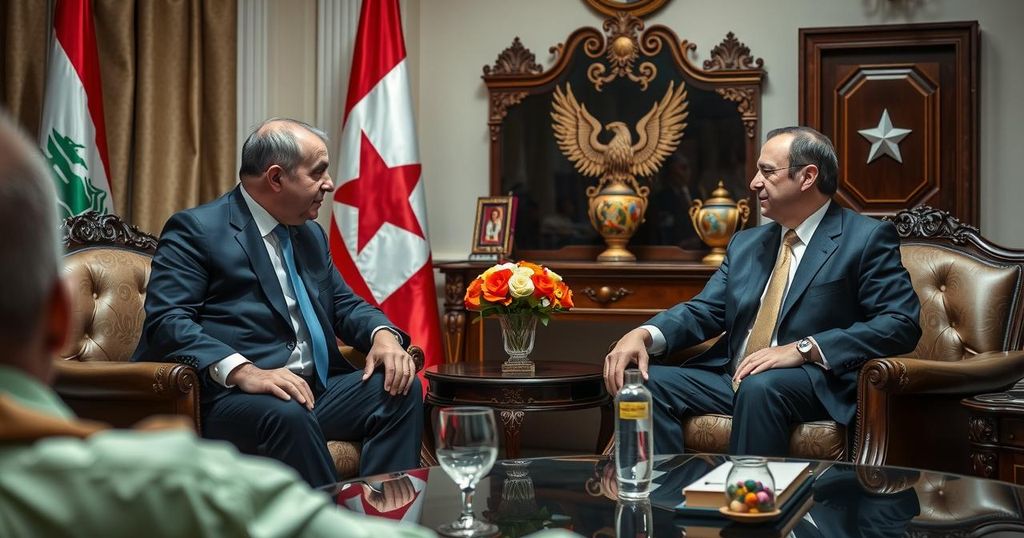Lebanese caretaker Prime Minister Najib Mikati will meet Syrian leader Ahmed al-Sharaa in Damascus, the first visit by a Lebanese premier to Syria in 15 years. This meeting may signal a new phase of dialogue between the two nations, with Lebanon’s leadership advocating for improved relations following decades of Syrian influence and military presence in Lebanon. Joseph Aoun highlights the potential for serious negotiations between Lebanon and Syria.
Lebanon’s caretaker Prime Minister Najib Mikati is scheduled to meet with Syria’s de facto leader Ahmed al-Sharaa in Damascus on Saturday, marking a significant diplomatic milestone as he becomes the first Lebanese head of government to visit the Syrian capital since Bashar al-Assad’s regime faced challenges to its rule. This meeting also signifies the first visit by a Lebanese premier to Syria in the past 15 years, highlighting a shift in regional relations.
Joseph Aoun, Lebanon’s new president, remarked that there exists a historic opportunity for a “serious and equal dialogue” with Syria, reflecting on the longstanding influence Syria has wielded over Lebanon. Following decades of Syrian military presence and political interference in Lebanon, which many Lebanese opposed, the current dynamics suggest a potential for improved neighborly relations. Mikati’s engagement appears to be welcomed within the context that Sharaa, a leader of the rebel forces that removed Assad from power, has promised non-interference in Lebanese matters.
The last prominent visit to Damascus by a Lebanese premier was in 2010 by Saad al-Hariri. Since their independence in the 1940s, relations between Lebanon and Syria have largely been characterized by tension. Hezbollah’s involvement on behalf of Assad during the Syrian civil war further complicated their interactions. The 2005 assassination of former Lebanese Prime Minister Rafik al-Hariri led to international outcry and subsequent withdrawal of Syrian troops from Lebanon, an event that still echoes in current diplomatic proceedings.
The historical relationship between Lebanon and Syria has been tumultuous, marked by conflict and influence. For 29 years, Syrian troops maintained a presence in Lebanon, which ended in 2005 following the assassination of Rafik al-Hariri, prompting protests and international pressure. Hezbollah’s alignment with Assad during the civil war solidified a complex interplay of political loyalties, further complicating the diplomatic landscape between the two nations. Mikati’s upcoming meeting with Sharaa illustrates an evolving context, where Lebanon seeks to re-establish a cooperative dialogue with its neighbor after years of strained relations.
In summary, Prime Minister Najib Mikati’s imminent meeting with Ahmed al-Sharaa in Damascus represents a pivotal moment in Lebanese-Syrian relations, potentially heralding a new era of dialogue. With opportunity for collaborative peace and stability on the table, both nations may be poised to reshape their interactions after years of conflict and political manipulation. This visit underscores a significant shift in regional diplomacy amid historical complexities.
Original Source: www.newarab.com






